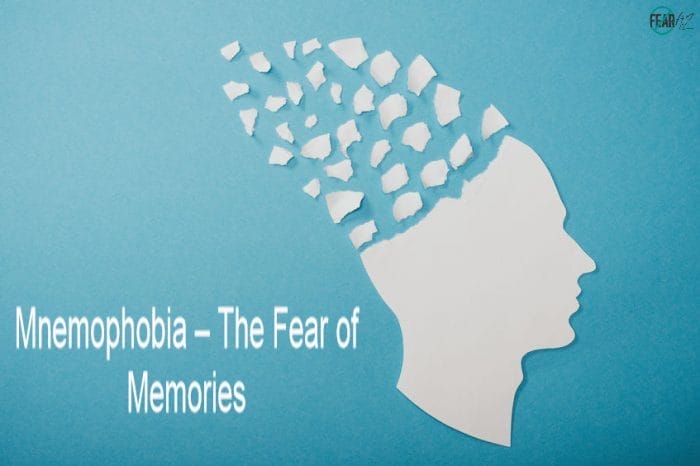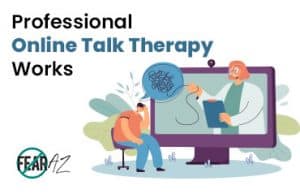Share This Article
Fearing Memories?
Do you get a strong emotional response—to the point of desperation and panic—whenever you recall previous events and experiences? Or, does the thought of memory loss leave you feeling absolutely terrified? You may have mnemophobia, or fear of memories.
If this is the first time you’ve heard the term, then continue reading as we’ll be sharing some interesting details about this curious condition.
What Is Mnemophobia?
Mnemophobia is the fear of memories. It is an intense, morbid, and irrational fear of either remembering past memories or forgetting them.
In the first case, the condition can be triggered by a negative event or experience that may have a lasting impact on a person’s well-being. Look at it this way. People who have had an unfortunate life experience—for instance, a past trauma—would most likely want to seal away memories of such an event. Forgetting may have even been a necessity for them to continue with their lives.
However, even distant memories purposely forgotten can come back to the surface. For people with mnemophobia, recalling the past is the thing that they dread the most. In extreme cases, people with this condition even choose to forget the entirety of their childhood or undergo a “personality change” in an effort to block any unpleasant memory.

On the flip side, mnemophobia could also develop from an individual’s extreme anxiety about forgetting past memories. For instance, concern about memory loss, especially for a person diagnosed with or at risk of dementia, Alzheimer’s disease, and other related disorders, could evolve into mnemophobia.
What does mnemophobia do? Mnemophobia is, as you can imagine, a stressful condition to have. Memories, good or bad, are a big part of our identity. Having a morbid fear of memories can take its toll on a person’s quality of life.
Common Mnemophobia Symptoms
Similar to other phobias, mnemophobia may convince the mind that danger is present. Such a thought can lead to an array of irrational reactions, ranging from mild to severe.
Physical symptoms of mnemophobia include:
Psychological symptoms of mnemophobia include:
- Anxiety disorder
- Panic attack
- Hyperventilating (rapid deep breathing)
- Depression
- Suicidal thoughts
- Sweating profusely
- Being hysterical
- An episode of psychosis (a ‘break’ from reality, e.g., having hallucinations or delusions)
Getting through the Fear of Memories
People can control their mnemophobia symptoms. Several self-help ways include:
Exercise
Exercise helps release feel-good hormones. As such, physical activity has been proven effective in controlling anxiety. Exercise has also shown benefits to the healing process and overall well-being of people with depression.
If you’re suffering from mnemophobia and are undergoing treatment, doing lots of exercises will help you get through your intense therapy sessions.
Meditation
This can be tricky, as meditation requires concentrated use of the imagination and the mind. The purpose is to learn to concentrate on happy memories or visualize positive experiences that you would like to manifest. Meditation teaches one to take control of the mind.
Yoga
Yoga is also a helpful way to destress and recenter your mind toward the positive. Similar to meditation, yoga can help you get in the right mindset. Yoga can also help increase your mental and physical energy.
Go Caffeine-Free
Avoiding or totally eliminating caffeine from your diet will do wonders for your health and overall wellbeing. Caffeine is known to stimulate the body’s central nervous system. As such, caffeine is not advisable for people battling insomnia, anxiety, blood pressure, and other related conditions.
Professional Help for the Fear of Memories
If your mnemophobia symptoms are interfering with your daily life and relationships, see your doctor immediately. Thankfully, several procedures for treating phobia for fear of memories are available today. These include:
Exposure Response Therapy
A common approach to treating phobias is to gradually expose the patients to the object of their fear. In the case of people with mnemophobia, doctors would encourage patients to confront their childhood trauma or the negative event that triggered the phobia. The medical provider will facilitate sessions to gradually uncover the ‘forgotten’ memories, even those that are difficult to remember. The aim is to get to the root of the matter and understand what drives the fear.
Hypnosis
This alternative medical treatment attempts to tap into a patient’s subconscious mind. The aim is to communicate with the patient’s subconscious to uncover hidden pains, feelings, and thoughts. However, during hypnosis, a therapist uses suggestions and leading questions to guide the patient to recall a memory. This approach, therefore, runs the risk of drawing ‘false memories’ (because of the suggestions given during hypnosis). As such, hypnosis as a form of psychotherapy is not commonly used anymore.
Medication
In some cases, the doctor may prescribe medication to help manage the mnemophobia symptoms triggered by medical intervention. Such medication does not cure the phobia; it only helps patients cope with their symptoms as they undergo professional medical therapy.
Before the Therapy
As you go into your therapy for the first time, expect that your medical provider will ask a lot of questions. These questions and your answers will help the medical provider get an accurate picture of your condition. That’s why it’s best if you come to the appointment prepared. But you must take note not only of information about your condition but also of questions you have regarding the treatment.
A few things to list down include:
- All the symptoms you have, and what you think triggered them (i.e., place, thing, situation).
- Key personal information, especially major life events (past or recent) that cause you to feel stress.
- All medications you take.
- Every question you may have about the treatment.
On the other hand, some of the questions your doctor may ask you are:
- When did you first notice your symptoms?
- When are your symptoms likely to occur?
- Do you notice things that make your symptoms seem better or worse?
- How have your symptoms affected your life and the people around you?
- Are you undergoing treatment for any medical conditions?
Dealing with Mnemophobia
Believe it or not, fear is not all that bad. In fact, fear is an important survival tool. But, as we all know, too much of anything is bad, and phobia is an excessive fear reaction. If left unchecked, a phobia can have devastating consequences. That’s why it’s vital to address symptoms of phobia as they appear.
If you are struggling with mnemophobia, know that it isn’t your fault. Don’t trivialize or belittle your fears. Most importantly, always remember, help is available. If you have decided on seeking professional medical help, do show commitment to the treatment by following your doctor’s instructions.
Also, confronting your past trauma would be difficult for sure. However, it is a very important step in your healing journey. By resolving your trauma through the treatment, you may finally get over your phobia. As you get exposed to your fears increasingly, keep in mind that your family, friends, and therapist have your back. Practice what you learned during therapy. If your symptoms should get worse, inform your therapist right away.
Finally, work on making fresh, pleasant memories to replace the stale, unpleasant ones. Embrace new experiences. While you can’t do anything about the past, the present is yours to enjoy.




